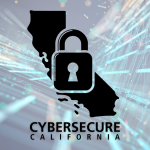Introduction
This checklist is designed to assist public sector agencies in complying with California-specific and federal data privacy laws, including the California Consumer Privacy Act (CCPA) and others as applicable. It outlines key considerations and action items to help ensure that data handling practices meet legal and regulatory standards.
Compliance Checklist
1. Understanding Applicable Laws
Identify all data privacy laws relevant to the agency’s operations, including both federal and state laws.
Ensure understanding of the California Consumer Privacy Act (CCPA) and its implications for the agency’s data handling practices.
2. Data Inventory and Classification
Maintain an up-to-date inventory of all personal data collected, processed, and stored.
Classify data based on sensitivity and applicable legal protections.
3. Privacy Policy and Disclosures
Develop and publish a clear privacy policy detailing how personal data is collected, used, shared, and protected.
Ensure the privacy policy is easily accessible and complies with all transparency requirements of applicable laws.
4. Consumer Rights and Requests
Implement processes to respond to consumer rights requests, including access, deletion, and opt-out requests, as specified by the CCPA and other relevant laws.
Train staff on handling these requests efficiently and within the legally mandated timeframes.
5. Data Protection Measures
Ensure that appropriate security measures are in place to protect personal data from unauthorized access, disclosure, alteration, or destruction.
Regularly review and update security measures in response to new threats or vulnerabilities.
6. Vendor Management
Evaluate and manage risks associated with third-party vendors who have access to personal data.
Include data protection requirements in contracts and agreements with vendors.
7. Employee Training and Awareness
Conduct regular training for employees on data privacy laws, agency policies, and best practices for protecting personal data.
Foster a culture of privacy and security throughout the organization.
8. Incident Response and Notification
Establish an incident response plan outlining procedures for addressing data breaches or other security incidents.
Review and comply with legal requirements for notifying affected individuals and authorities in the event of a breach.
9. Regular Audits and Assessments
Conduct regular audits or assessments of data handling practices and privacy compliance.
Document findings and implement necessary improvements or corrective actions.
10. Documentation and Record Keeping
Keep detailed records of data handling practices, privacy impact assessments, and compliance efforts.
Ensure documentation is maintained for the legally required duration and is accessible for audits or investigations.
Customization Guidance
Agency-Specific Practices: Customize the checklist to reflect the agency’s specific data handling practices, operational context, and any unique legal obligations or exemptions.
Additional State or Local Regulations: Incorporate any additional state, local, or sector-specific data privacy regulations that apply to the agency.
Continuous Update: Regularly update the checklist to reflect changes in laws, regulations, technology, and best practices.
This Data Privacy Compliance Checklist provides a structured approach for public sector agencies to ensure they are meeting the necessary legal requirements related to data privacy. It’s essential to regularly review and customize the checklist to adapt to changes in laws, operational needs, and the evolving cybersecurity landscape. Regular training, audits, and a commitment to privacy and security are key to maintaining compliance and protecting sensitive information.

